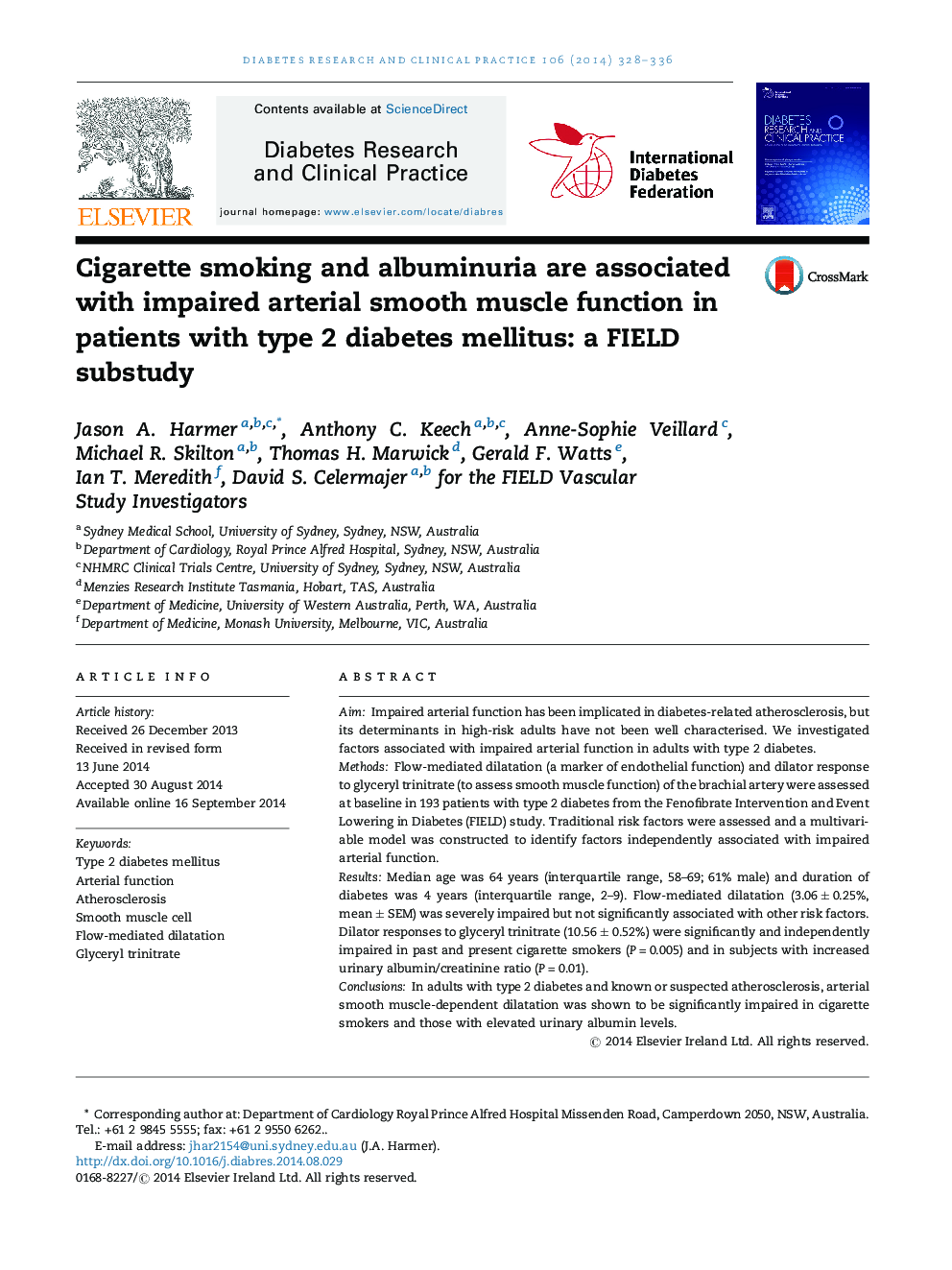| Article ID | Journal | Published Year | Pages | File Type |
|---|---|---|---|---|
| 5899692 | Diabetes Research and Clinical Practice | 2014 | 9 Pages |
AimImpaired arterial function has been implicated in diabetes-related atherosclerosis, but its determinants in high-risk adults have not been well characterised. We investigated factors associated with impaired arterial function in adults with type 2 diabetes.MethodsFlow-mediated dilatation (a marker of endothelial function) and dilator response to glyceryl trinitrate (to assess smooth muscle function) of the brachial artery were assessed at baseline in 193 patients with type 2 diabetes from the Fenofibrate Intervention and Event Lowering in Diabetes (FIELD) study. Traditional risk factors were assessed and a multivariable model was constructed to identify factors independently associated with impaired arterial function.ResultsMedian age was 64 years (interquartile range, 58-69; 61% male) and duration of diabetes was 4 years (interquartile range, 2-9). Flow-mediated dilatation (3.06 ± 0.25%, mean ± SEM) was severely impaired but not significantly associated with other risk factors. Dilator responses to glyceryl trinitrate (10.56 ± 0.52%) were significantly and independently impaired in past and present cigarette smokers (P = 0.005) and in subjects with increased urinary albumin/creatinine ratio (P = 0.01).ConclusionsIn adults with type 2 diabetes and known or suspected atherosclerosis, arterial smooth muscle-dependent dilatation was shown to be significantly impaired in cigarette smokers and those with elevated urinary albumin levels.
